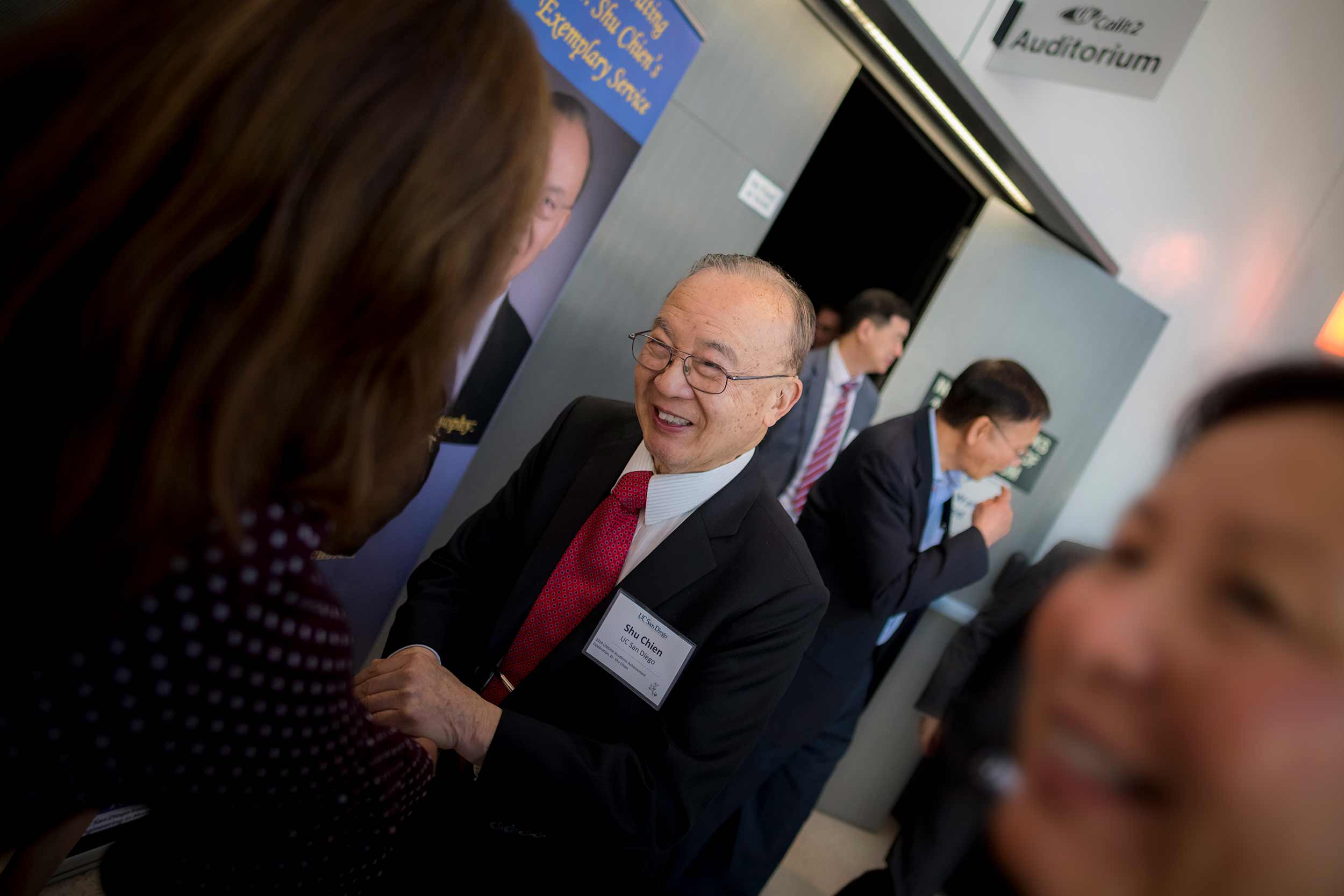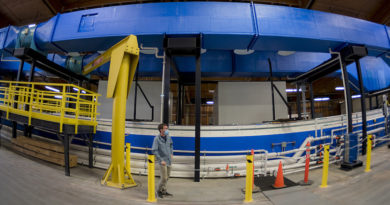Daily Business Report-Oct. 30, 2019
Shu Chien greets the more than 200 people who attended the celebration in honor of his retirement. (Photo by Erik Jepsen/UC San Diego Publications)
Pioneering bioengineer Shu Chien teaches
lessons that extend far beyond research lab
By Katherine Connor | UC San Diego
UC San Diego bioengineering professor Shu Chien made many foundational scientific discoveries over the course of his 62-year academic career, ranging from uncovering a key reason why sedentary lifestyles can be unhealthy to how to more efficiently screen for adverse effects of small molecule drugs in patients. But from the stories that emerged during a two-day celebration in honor of his retirement, it’s clear that it’s the lessons he unknowingly taught on how to be a better person that resonated most deeply with the hundreds of students, colleagues and collaborators around the world who view him as a beloved mentor.
Chien’s discoveries underpin our understanding of how blood flows in the cardiovascular system, and are just one aspect of his work that led to the founding of the field of mechanobiology. He won the National Medal of Science for related research, and he has been voted into all three National Academies (Science, Medicine and Engineering). He ran seven—yes seven—different professional scientific organizations, which appears to be a record.
His status as not only a good scientist, but more importantly a good person, was evident during the two-day symposium featuring the remarks and stories of more than a hundred former students and colleagues, many of whom traveled across the world to celebrate Chien’s lifetime accomplishments and wish him well in retirement.
For his part, Chien said he’s grateful for the support he’s received over the course of his long career, and attributed much of his success to the people surrounding him.
__________________________
SDSU significantly ups offer
for Mission Valley stadium site
San Diego State University is now offering to pay $19.5 million more than before to purchase the city’s Mission Valley stadium property.
In a new offer letter, delivered to Mayor Kevin Faulconer on Monday, the university presented a revised purchase price of $86.2 million for 135 acres of land, plus an estimated $1.5 million to account for a portion of the site’s appreciation since 2017, for a total of $87.7 million.
In addition, SDSU is proposing to take over the portion of Murphy Canyon Creek immediately adjacent to the site without requiring the city to pay for any past-due maintenance.
The updated sale terms seemingly put to an end a factious difference in opinion as to whether the deal points were consistent with a voter-approved initiative.
__________________________
San Diego Padres select Texas Rangers
field coordinator as new manager
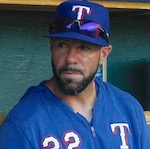
The San Diego Padres have agreed to terms with Jayce Tingler on a three-year contract to become the 21st manager in franchise history, announced executive vice president/general manager A.J. Preller.
“Jayce has extensive experience in virtually every aspect of coaching, player development, and baseball operations, and our entire group believes that he’s the right person to lead our talented roster,” said Preller.
Tingler, 38, spent last season as the Major League player development field coordinator for the Texas Rangers in his 13th season with the organization.
The Smithville, Mo., native moved to the front office for two years to assume the role of assistant general manager (2017-18), overseeing the club’s player development system before returning to the dugout as bench coach to end the 2018 season. Tingler was also field coordinator in 2015-16, serving as the outfield and baserunning coach for the Major League coaching staff when the Rangers captured back-to-back AL West division titles.
__________________________
Popular speaker Alex Montoya
to speak at Cal State San Marcos
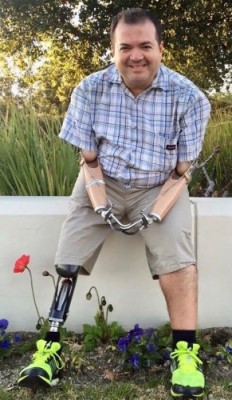
Passionate. Humorous. Inspiring. Alex Montoya is one of America’s most popular speakers, and he will be at Cal State San Marcos at 6 p.m. on Monday, Nov. 4 as part of the university’s Arts & Lectures series.
Montoya is a TEDx speaker, motivational author and writing coach. He has earned numerous accolades, including a lifetime achievement award from the San Diego Hispanic Chamber. He travels the country speaking on overcoming adversity through education and living inspired from the perspective of an immigrant, disabled man and first-generation college graduate.
He has published six books, authoring five and co-writing one; has carried the Olympic torch; and spoken at Google, NASA, Wells Fargo and Harvard. His company, A-MOtivational Communications, produces inspirational books and talks, and coaches clients in writing and public speaking.
ll attendees must purchase or reserve tickets online via the Arts & Lectures website. https://news.csusm.edu/alex-montoya-at-csusm-on-nov-4/
What: Overcoming Adversity with Alex Montoya, part of CSUSM’s fall Arts & Lectures series
When: Monday, Nov. 4, 6 p.m.
Where:University Student Union Ballroom on campus.
Tickets: Free for CSUSM students; $5 for CSUSM faculty, staff and alumni; $10 for community members.
__________________________
Commentary:
Newsom now owns the wildfire and PG&E crisis
By Dan Walters | CalMatters Columnist
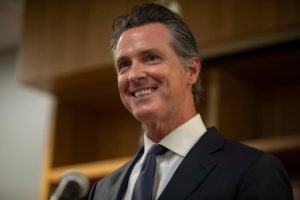
The careers of political executives — presidents, governors and big-city mayors — are often defined, fairly or not, by how they respond to crises.
Abraham Lincoln and the Civil War, Franklin Roosevelt and the Great Depression, John Kennedy and the Cuban missile crisis and Jimmy Carter and the Iranian hostage seizure are examples.
There are also telling examples among California’s recent governors.
Pat Brown’s absence from the state when the Watts riots erupted in 1965 doomed his bid for a third term and son Jerry Brown’s clumsy response to a Mediterranean fruit fly infestation in 1980 likewise undermined his hopes for a U.S. Senate seat.
Pete Wilson’s decisive management of natural and human-caused calamities in the early 1990s helped him win a second term. But his successor, Gray Davis, fumbled an energy crisis a decade later, and was recalled.
When Jerry Brown returned to the governorship in 2011, he was much older and more circumspect. He dealt adroitly with the near-collapse of the Oroville Dam in 2017 — making sure that those managing the dam and the evacuations had ample resources and avoiding grandstanding. He replicated that quiet approach when wildfires erupted, including one that wiped out the town of Paradise last year.
And then there is Gavin Newsom.
Just months into his governorship, he was confronted with still another spate of fierce wildfires and the bankruptcy of the nation’s largest investor-owned utility, Pacific Gas and Electric. PG&E’s wind-blown transmission lines apparently caused some of the biggest fires, leading to enormous damage claims.
Newsom has rejected Brown’s diffident example in favor of a high-profile commander-in-chief approach, with personal appearances at command centers and fire refugee sites and multiple news conferences and media interviews.
“I own this,” Newsom told Capital Public Radio. “I’ve been in office now nine months. My Public Utilities Commission, which has new leadership as of a few weeks ago, owns this.”
One shouldn’t be surprised. Newsom loves the limelight, loves making bold gestures and loves the sound of his own voice.
However, this is a very complex crisis, involving decades of expanding human habitation in fire-prone areas, climate change, a liability law that’s unworkably simplistic, the proper role of a state-regulated utility and other factors too numerous to list.
Politicians criticize PG&E for shutting off service when fire danger rises, causing inconvenience to customers, but then denounce the company for not acting sooner when fire erupts — all the while ignoring the fact that their laws and Public Utilities Commission decrees dictate much of what the utility does.
When PG&E shut down service in fire-prone areas earlier in the month, Newsom was quick to complain. “What has occurred in the last 48 hours is unacceptable,” Newsom said. “We are seeing the scale and scope of something that no state in the 21st Century should experience.”
After fire broke out in Sonoma County, perhaps due to a PG&E line downed by very high winds, Newsom again denounced the company. “I have a message for PG&E: Your years and years of greed. Years and years of mismanagement. Years and years of putting shareholders over people are over,” the governor wrote on Twitter on Friday. He also suggested that billionaire Warren Buffet should buy the company.
However, changing ownership does not change the essential conflict between Californians’ desire to live in scenic areas with convenient electrical service and what Brown has called “the new normal” of wildfires.
Talk’s cheap. Newsom, having claimed ownership of the wildfire/PG&E crisis, now must deliver or become another political executive who flinched.
CalMatters is a public interest journalism venture committed to explaining how California’s state Capitol works and why it matters. For more stories by Dan Walters, go to calmatters.org/commentary

